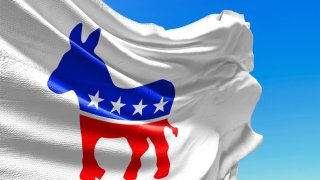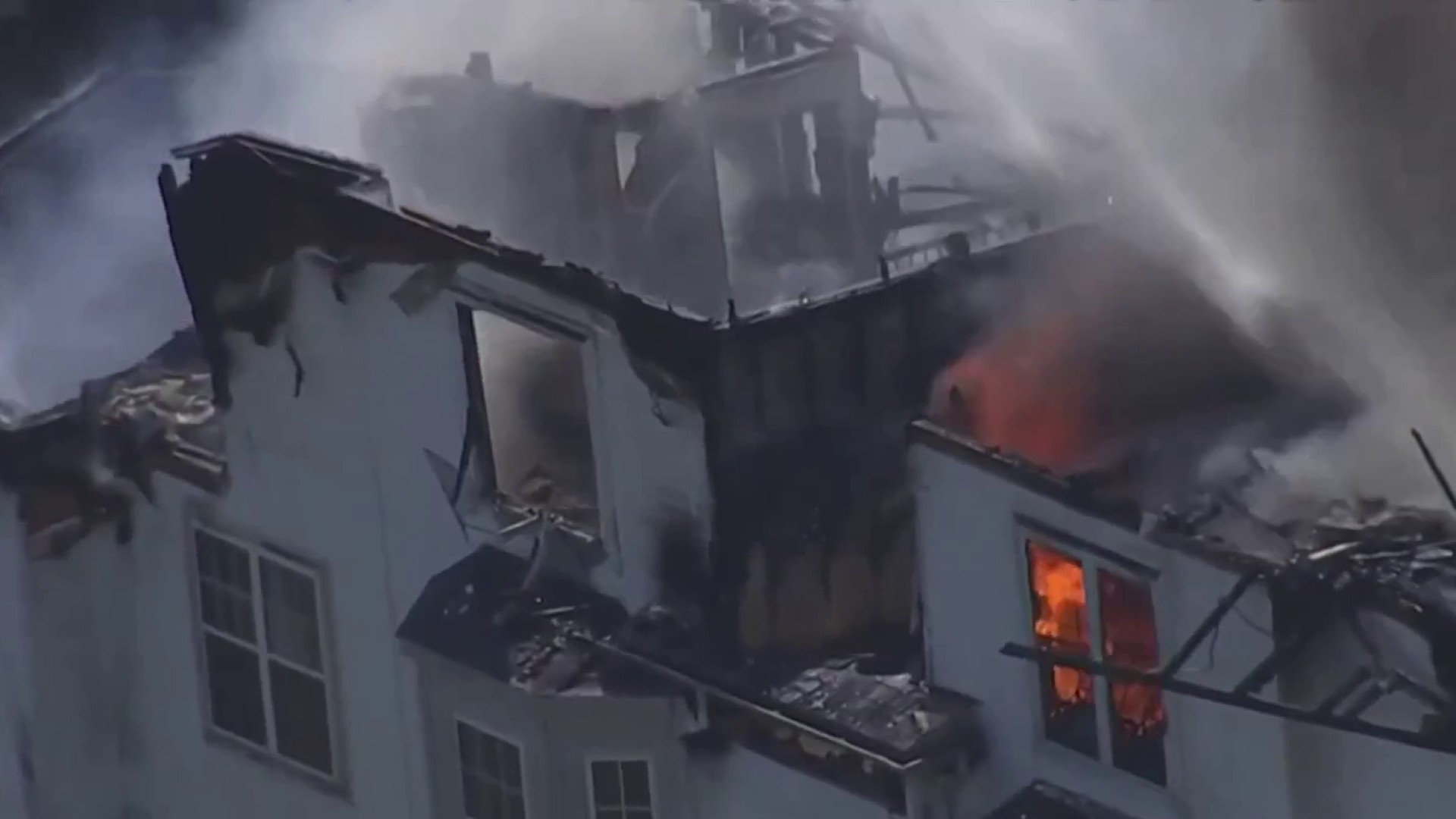
The Democratic candidates for Virginia governor sparred over policing and economic development in their second debate Thursday, an event that showcased the diverse styles and perspectives of the field that voters will winnow next month.
In one of the debate’s sharpest exchanges, Del. Lee Carter, a self-described socialist, attacked the massive incentives the state offered to lure Amazon’s second headquarters to northern Virginia.
“The other four candidates on this stage all supported the Amazon deal, which gave $1.8 billion of your money in cash, tax breaks and infrastructure upgrades to a corporation owned by the wealthiest man who has ever lived," said Carter, a Marine veteran first elected to the state House in 2017. “I am the only candidate on this stage who will stop that corporate welfare, stop those handouts and put you in charge.”
Former Gov. Terry McAuliffe, widely considered the Democratic frontrunner, shot back, saying he wrote the Amazon bid and was proud of it. He touted that the site is expected to accommodate 25,000 jobs that Amazon has said will pay an average of $150,000 a year.
We're making it easier for you to find stories that matter with our new newsletter — The 4Front. Sign up here and get news that is important for you to your inbox.
“We're lifting up families. ... That's what the governor is supposed to do,” he said.
McAuliffe, who was in the governor’s mansion from 2014 to 2018, is a well-connected longtime party insider and fundraiser. Like all Virginia governors, he was barred from seeking a consecutive term and contemplated, but ultimately decided against, a run for president in 2020.
He has been leading in public polling, has a commanding fundraising advantage and has an unmatched number of endorsements, including that of Gov. Ralph Northam and many of the state’s most powerful Black lawmakers.
Local
Washington, D.C., Maryland and Virginia local news, events and information
In his closing statement, McAuliffe turned his eye toward the general election, pitching himself as the best candidate to beat the Republican nominee, who will be chosen in a convention process this weekend.
“They’re trying to bring their Trump politics here to Virginia. We can’t allow it. We've got to stop that,” McAuliffe said.
Jennifer Carroll Foy, a former state delegate and public defender who has cast herself as McAuliffe's most serious challenger, went after the former governor assertively. She said “politicians of the past” have left much of Virginia behind.
She accused McAuliffe of choosing “inaction” on police reform during his time in office and criticized him over remarks he made in 2015 about standing with law enforcement during a fight over legislation related to police surveillance technology.
“I want a system that’s fair to everybody. Accountability, transparency," McAuliffe responded.
Four of the five candidates plainly said they support ending qualified immunity, a legal doctrine that often protects police from liability. McAuliffe gave a less straightforward answer, but his campaign recently told the Virginia Mercury he supports ending it.
State Sen. Jennifer McClellan, an attorney and veteran legislator with the most experience in state government of all the candidates, routinely used her polished answers to highlight her legislative accomplishments. On a question about cleaning up and mitigating the health risks from abandoned mines, she stood out as the only candidate to offer a specific, policy-focused answer.
Either McClellan or Carroll Foy would be the nation’s first Black woman governor if elected.
Lt. Gov. Justin Fairfax touted the accomplishments of the Northam administration and his work presiding over the state Senate, including his tie-breaking vote to expand Medicaid. He called his education platform, which advocates rebuilding every public school at least 40 years old, the most “transformational” in the state's history.
Fairfax has been accused by two women of sexual assault, which he strenuously denies. While he addressed the allegations directly in the first debate, he did not on Thursday.
The candidates showed broad agreement on several topics, including the need to close gaps in access to broadband, expand passenger rail and end child hunger. All the candidates said they would oppose legislation limiting athletic team access for transgender students.
The hourlong debate, the second of four planned before the June 8 primary, was held at a hotel in Bristol in southwest Virginia. The next will be May 20.
Republican voters will chose their nominee from a seven-person field at an unassembled convention being held Saturday at locations across the state. Convention delegates, who will use a ranked-choice voting system, also will choose candidates for lieutenant governor and attorney general Saturday. The party has said it could take as long as a week to declare a winner.
Virginia and New Jersey are the only states holding gubernatorial elections this year. Democratic Gov. Ralph Northam cannot serve a consecutive term, so only Virginia has an open seat.
The off-year elections typically draw wide attention as a possible indicator of which party might have an advantage in the next year's national midterm elections.
This year's general election is Nov. 2.



